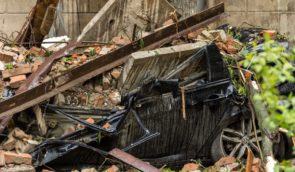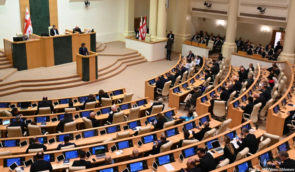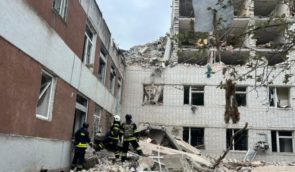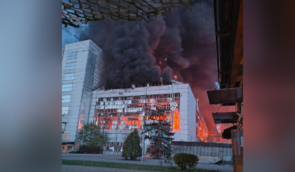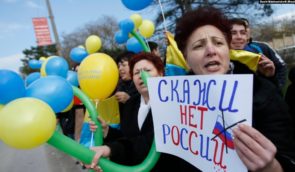Lutkovska: Crimea Became a Peninsula of Fear
Normal
0
false
false
false
RU
X-NONE
X-NONE
/* Style Definitions */
table.MsoNormalTable
{mso-style-name:”Обычная таблица”;
mso-tstyle-rowband-size:0;
mso-tstyle-colband-size:0;
mso-style-noshow:yes;
mso-style-priority:99;
mso-style-qformat:yes;
mso-style-parent:””;
mso-padding-alt:0cm 5.4pt 0cm 5.4pt;
mso-para-margin-top:0cm;
mso-para-margin-right:0cm;
mso-para-margin-bottom:10.0pt;
mso-para-margin-left:0cm;
line-height:115%;
mso-pagination:widow-orphan;
font-size:11.0pt;
font-family:”Calibri”,”sans-serif”;
mso-ascii-font-family:Calibri;
mso-ascii-theme-font:minor-latin;
mso-fareast-font-family:”Times New Roman”;
mso-fareast-theme-font:minor-fareast;
mso-hansi-font-family:Calibri;
mso-hansi-theme-font:minor-latin;}
Valeriya Lutkovska, the Ukrainian Commissioner for Human Rights, noted that “during the year of occupation, Crimea has turned into a peninsula of fear.” The Commissioner spoke about the pressure on activists, religious communities and the media on the peninsula.
According to the official website of the Ukrainian Parliament Commissioner for Human Rights, this was announced by Lutkovska during the 113th session of the UN Human Rights Committee, which is currently being held in Geneva.
During the session, the Ukrainian delegation introduced the international community to the human rights situation in Ukraine.
“People in Crimea are afraid to express their opinion, fear for their lives and future, fear to profess their faith and to communicate in their native language,” noted Lutkovska.
This is supported by human rights monitoring missions in Crimea, which are conducted by the Office of the Human Rights Commissioner in close cooperation with human rights organizations including, in particular, the Crimean Human Rights Field Mission. Since the occupation, numerous violations of the rights of the Crimean Tatar people and the Ukrainian minority have been recorded. In fact, we can talk about a new forced deportation of the Crimean Tatars. The abduction and murder of Crimean Tatars by Russian law enforcement officers are not properly investigated, bans on the Crimean Tatars holding peaceful assembly and demonstrations are instituted, protesters against Mustafa Dzhemilev’s ban on entry to Crimea have become subject to administrative responsibility, etc.
“The atmosphere of fear, intimidation, physical coercion, and psychological pressure causes the indigenous people to make a difficult decision to leave their homes and seek a better life on the mainland of Ukraine. All this is happening against the backdrop of an open opposition to the legitimate activities of the Mejlis of the Crimean Tatar people,” said Lutkovska.
The Commissioner informed the international community that the occupation authorities have banned leaders of the Crimean Tatar people, Mustafa Dzhemilev and Refat Chubarov, from entrance to Crimea, expelled Ismet Yuksel and Sinaver Kadyrov and prohibited them from returning, arrested the deputy head of the Mejlis Ahtem Chiygoz, and arrested, and are still holding in custody, Iskender Kantemirov. Also, Ukrainian schools are being closed and the rights of religious communities violated, including the Ukrainian Orthodox Church of the Kyivan Patriarchate, and pressure on the media continues. According to Lutkovska, Russia is demonstrating a blatant disrespect for the norms of both Ukrainian and international law.
Lutkovska stated that bans on peaceful assembly have become widespread and activists suffer from discrimination. In particular, a Ukrainian activist was sentenced to 40 hours of community service for “the use of banned symbols,” namely, displaying the Ukrainian flag during a celebration of the anniversary of the birth of Ukrainian poet and artist Taras Shevchenko.
Lutkovska considers the automatic acquisition of Russian citizenship by citizens of Ukraine to be one of the most cynical of the human rights violations in the occupied peninsula. Human rights advocates note that the compulsory acquisition of citizenship of the Russian Federation is similar to the institution of serfdom, where people together with the land automatically received citizenship of another country. At the same time, people who do not renounce Russian citizenship for one reason or another are not recognizing their Ukrainian citizenship, so they lack a number of rights provided for Ukrainian citizens.

